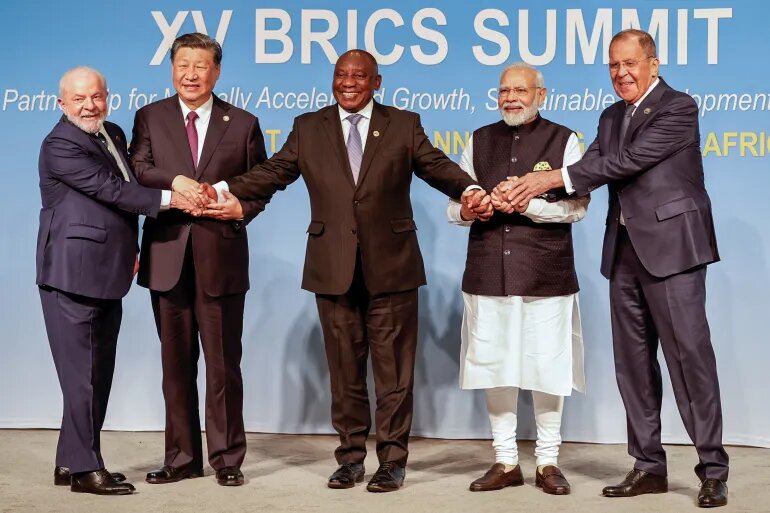What new BRICS countries bring to the table

The curtains have already fallen on the 15th summit of the five major emerging economies in the world comprising Brazil, Russia, India, China and South Africa (BRICS). The much anticipated meeting in Johannesburg physically brought together four heads of State and government.
One of the highlights of the meeting was the addition of six new members comprising the Kingdom of Saudi Arabia, Iran, Ethiopia, Egypt, Argentina and the United Arab Emirates, whose membership will become official on January 1, 2023.
BRICS can no longer be ignored. Currently, the eminent group of the Global South covers about 27 per cent of the world’s land surface, an estimated 42 per cent of the global population, and in 2023 is expected to account for an estimated 32 per cent of the world’s Gross Domestic Product. Obviously, these figures in each category will rise significantly from 2024, once the larger group becomes established.
Saudi Arabia, is well known for its production and sale of oil. It is the second oil producer after the US, and is followed closely by Russia. Significantly, it is the world’s largest oil exporter. Hitherto a close US ally, the country has recently been asserting its independence by breaking free from the superpower’s economic and ideological straitjacket. Saudi Arabia made history by agreeing to a rapprochement with arch rival Iran after a diplomatic deal brokered by China. Undoubtedly, BRICS countries will greatly benefit from Saudi Arabia’s oil concessions to help fire their economies.
The UAE, also known as the Emirates, is among the top league of oil producing countries in the world. It consists of seven emirates or states, with Abu Dhabi as the capital city. The UAE has a robust economy, progressive economic policies and vast financial reserves aimed at attracting investments both at home and from overseas. With an increasingly sophisticated infrastructural network, the UAE’s economy will soon move up a couple of notches from its current fourth position in the Middle East.
Egypt is one of the oldest historical countries from the Biblical times with a very rich culture. It is the second largest economy in Africa after Nigeria and before South Africa, and its inclusion will increase the number of African countries in BRICS to three, including Ethiopia. Egypt has a dynamic economy ranging from tourism and agriculture, to textiles and petroleum. This is a typical profile of an emerging economy ready to take off, and BRICS is an ideal launching pad.
Iran is another major oil producing country with some of the largest reserves of oil and natural gas globally. Sanctions by the US due to its nuclear programme has hampered its international trade. But Iran has declined to bow to bullying, preferring to maintain its national identity, pride and self-determination. This is one of BRIC’s mantra, and will be a morale booster in the group.
Argentina, a non-member ally of the Northern Atlantic Treaty Organization (NATO), is one of the largest economies in South America. Its economy is mainly agricultural based, with exports including horticultural products and machinery. There is unspoken tension between NATO and Argentina, as the latter develops close trading ties with China. Argentina is aware that its entry into BRICS will accentuate this duality, but the country has decided that BRICS is more birds of a feather.
Ethiopia is another historical country. Its economy is also mainly agricultural based. The East African country has benefitted immensely from new infrastructural projects and investment. Ethiopia seeks to play a greater role in international and regional affairs.
The new members will definitely add to the synergy within BRICS and the developing world at large, giving the Global South more impetus towards playing a bigger role in the global economy. BRICS will automatically give developing countries a bigger voice in international affairs in forums like the United Nations.
— The writer is a PhD candidate in International Relations












